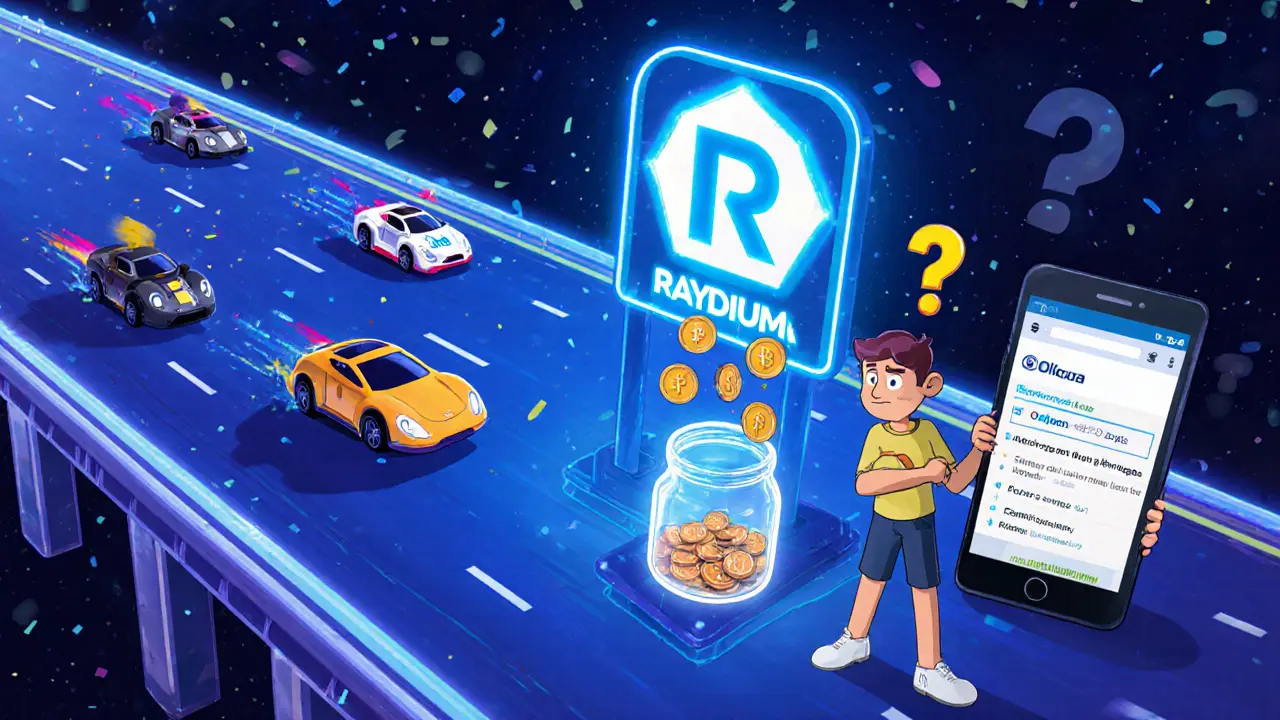Raydium DEX: What It Is, How It Works, and Why It Matters on Solana
When you trade crypto without a middleman, you’re using a Raydium DEX, a decentralized exchange built on the Solana blockchain that lets users swap tokens directly from their wallets. It’s one of the most active DEXs on Solana, and unlike centralized platforms, it doesn’t hold your funds — you control everything. This matters because it cuts out fees, delays, and the risk of exchange hacks. Raydium DEX runs on automated market-making (AMM), meaning trades happen through liquidity pools instead of order books. That’s why you can swap SOL for a new meme coin in seconds, even if no one else is actively trading it.
Raydium DEX doesn’t just let you trade — it also lets you earn. By adding your tokens to a liquidity pool, a shared reserve of two tokens that powers trades on the exchange, you become a liquidity provider and earn a share of every trade fee. That’s how many users make passive income, often with yields higher than traditional savings accounts. But it’s not risk-free. If the price of your tokens swings wildly, you might lose value — a problem called impermanent loss. Still, for active traders and yield farmers, Raydium’s low fees and fast speeds make it worth the risk.
Raydium also integrates with Solana blockchain, a high-performance network known for low transaction costs and quick confirmations, which is why it outperforms slower chains like Ethereum for daily trading. While other DEXs struggle with congestion, Raydium handles thousands of trades per second. It’s also one of the first DEXs on Solana to offer yield farming, staking, and even token launchpad features — letting new projects raise funds directly through the platform. That’s why so many Solana-based tokens start on Raydium before hitting bigger exchanges.
What you’ll find in the posts below isn’t just a list of articles — it’s a real-world look at how Raydium DEX fits into the bigger picture. You’ll see how it compares to other Solana DEXs like Orca and Serum, how liquidity pools actually work under the hood, and why some users treat it like a bank while others use it only for quick swaps. There are also deep dives into the risks, the fees, and the hidden traps that catch new users. Whether you’re trying to earn yield, trade a new token, or just understand how decentralized finance really works on Solana, the guides here cut through the noise and show you exactly what’s happening — no fluff, no hype, just what you need to know.
Raydium Crypto Exchange Review: Is This Solana DEX Worth Using in 2025?
Raydium is a fast, low-fee Solana-based DEX with deep liquidity but a rough user experience. Find out if it's worth using in 2025, who should avoid it, and how it compares to alternatives like Orca and Uniswap.
- 23
- Read More
